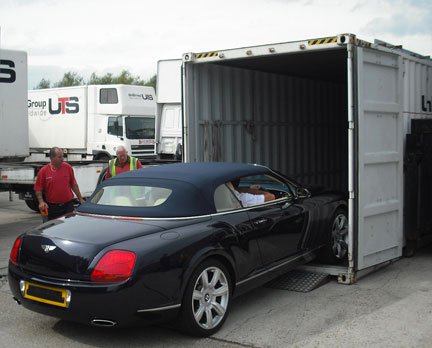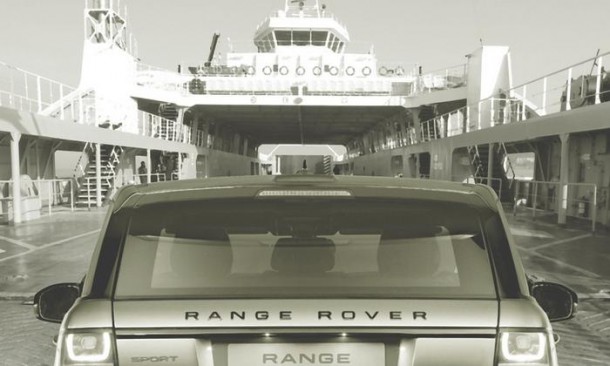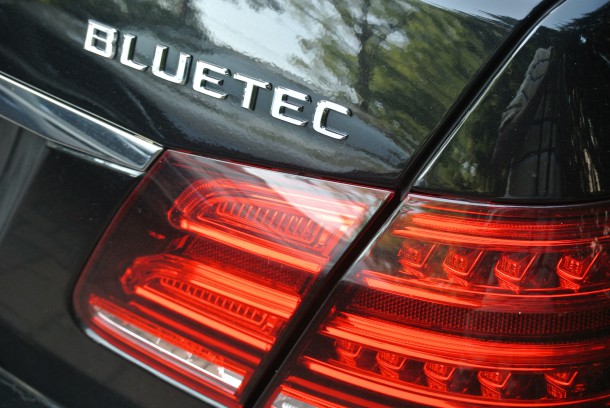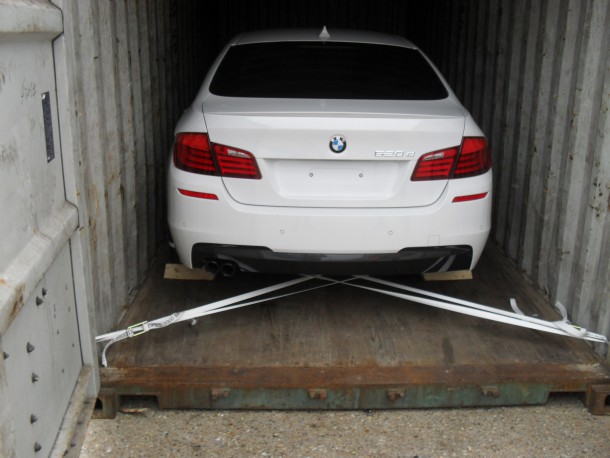Inside Stories From the War Between Automakers And Dealers Over Exports
Posted on Jan 16, 2020 in Editorials | 2 comments

There’s not a more uncomfortable phone call for a car dealership’s finance manager to make then asking a customer to come back to have their finance or lease contract rewritten. This is typically caused by sales managers — the people most despised by finance departments — who spot deliver a vehicle based on their wrong guess about the rate or term a lender would approve the deal. Needless to say, the vast majority of these rewrites result in a higher monthly payment for the customer.
A couple of years ago, a finance manager at a Los Angeles Mercedes-Benz dealer told me and a Mercedes-Benz Financial colleague of mine about the day he picked up the phone to fix the opposite situation: the dealership had miscalculated the taxes on a client’s lease on a black ML350 Bluetec SUV and they needed the client to return and sign a new lease agreement reflecting payments of $14 per month lower than the original contract.
He called the customer with the good news only to hear, “No no no! Payment good. Payment good. We OK!”
After he hung up, he thought, “We just got snookered. That ML is probably on a slow boat to China and the factory is going to kill us.”
Despite the recent slowdown in the Chinese car market, luxury vehicles still cost two to three times more there than they do in the United States due to tariffs, taxes and manufacturers’ pricing. For the past seven years, exporters have been making big bucks buying vehicles here and shipping them for sale to consumers in China.
The most popular vehicles desired by exporters are luxury, diesel-powered SUVs, almost always black in color. A BMW X6 selling for $60,000 in America will fetch over $170,000 in China. There was also a run on Ford Raptors a few years back, with the $50,000 pickup bringing $140,000 in Shanghai. Other countries like Russia and Brazil also attract some export activity, but China is the top destination.
It is estimated that around 35,000 vehicles each year become “floaters,” the name given to vehicles loaded onto container ships and moved overseas. Automakers prohibit their dealers from selling vehicles to exporters as they do not want to lose market share and it can even lead to decreased allocations of cars to America from their headquarters. (Our friend Mr. DeMuro humorously says that Land Rover hates it because exports cause a resultant loss in future sales of replacement air suspension kits in America.)
Car companies have imposed penalties and policies on their dealers in an effort to stop the tide of floaters, which have done little more than turn the retailers into private investigators. Most luxury makers limit the amount of cars that a the dealers can export to 3 to 5 percent of their annual sales. The penalties for exceeding that number range from fines to reduced allocations of vehicles to chargebacks of incentives. Luxury automakers have imposed over $40M in fines and penalties on their dealers over the past six years.

Most factories require dealers to have all customers sign a “Non-Export” agreement, which in BMW’s case says that if the buyer exports the vehicle within two years of the purchase date, they agree to pay the dealership the sum of $15,000. Experts have said the document is not worth the paper it is written on, as dealers and manufacturers cannot tell customers what they can and cannot do with their new cars.
Automakers started circulating lists of known auto exporters, which caused the exporters to start hiring “straw buyers” to handle the transactions, often recruited from Craigslist. One Southern California ad stated a firm was seeking an “Assistant to an Exporter Broker Part Time Flex.” No details were included but a phone call revealed the position was to be a front man for an auto exporter. These would-be Art Vandelays would be paid between $500 and $5,000 to buy a vehicle using the agent’s money.
When automakers pressed dealers to question cash buyers, one even briefly requiring the retailers to pull a credit application on suspected exporters, the agents started hiring straw men with good credit to lease the vehicle, which they promptly paid off and thus avoided paying sales tax. That is what occurred in our opening example above.
Dealer consider exporters to be similar to auto brokers — the independent buyers’ agents notorious for ripping off banks and automakers by being accomplices to falsified credit applications, identity theft rings, and sub-leasing scams. The hotbed of export activity is in Los Angeles, the birthplace of all automotive fraud, including customers themselves defrauding dealers and carmakers, as we have written about here and here. Southern California dealers spend an inordinate amount of time sniffing out crooked customers, bogus brokers and now, sneaky exporters.

Dealers say that when the exporters themselves appear at a dealership, they are primarily of Asian and Armenian persuasion. Under intense pressure from the automakers to stop exports, the retailers often have to ask uncomfortable questions of buyers or even refuse to sell a vehicle to a person they perceive to be an exporter, which creates even more problems. The store can be accused of racism or be in violation of California’s Unruh Act, which says all customers must be given equal access to a business’s services.
“We have federal laws, state laws, local laws and now BMW laws to worry about,” said the sales manager of a California BMW dealer. “The factory legally cannot tell us what we can do with our cars but I will tell you one thing: they can make our life miserable if we do not do what they say.” We assume he is referring to a vision of truckloads of Jatoba Brown 550i Gran Turismo hatchbacks, the bow-wow of the BMW world.
The issue of whether or not this type of exporting is against the law is murky. Between 2013 and 2015, the Secret Service and the Department of Homeland Security obtained a dozen convictions of exporters based on the premise that using straw buyers constituted fraud. Last year, several of those convictions and resultant forfeitures of vehicles were overturned. The Department of Justice has since advised prosecutors to back off the straw purchase cases unless the exporter is also involved in other related crimes. Another dozen exporters have been convicted for illegal activities related to their export schemes. Typical of these is a Wisconsin man named Mao Peng who was sentenced last October to 27 months in prison for identity theft and evading state and local sales tax in connection with the export of 154 luxury vehicles.

Field reps of luxury automakers could fill a book with dealership export stories. Here are some tales from my days calling on LA dealers, the first two which were told to me by dealership managers:
* One LA exporter had the audacity to accompany his straw buyer to a dealership for delivery of a vehicle. While his recruit was signing the paperwork, he wandered outside to inspect the SUV, only to run back into the finance office screaming, “It’s not a diesel! It’s not a diesel!” His man had bought the wrong vehicle.
* Four fast-talking Glendale gentlemen who were eager to purchase one of the first 2014 Mercedes-Benz S550s were told by the dealer he would sell it to them but would hold the title for 6 months as a hedge against them exporting the car. The men left in a huff and no doubt found another dealership who would sell them one. The car was probably crossing the Pacific within weeks.
* I once got a call from the general manager of a Benz dealership whose first words were, “Who the fuck is Susannah Raymond?” The woman in question (whom I had lunch with the week prior and whose name is changed here) was an executive for a company that does business with Mercedes-Benz, BMW and other automakers. She was paid a rumored $5,000 by an exporter to buy a black diesel ML350 from my friend’s store and Mercedes-Benz USA had just informed him that the SUV was now in China. The GM was more angry that her vehicle was one of five MLs and GLs that his store had sold and were floated, each transaction being arranged by the same exporter and sold by the same salesperson and sales manager at his store. Needles to say, some heads rolled soon thereafter.
Interestingly, one of those five buyers was an attorney who had previously purchased several cars at the dealership, so it would have been impossible to sniff her out as a front for an exporter. When the GM called her and pointed out that she had signed the “Non-Export ” document, the lawyer told him to go pound sand.





.gif)


If not, riddle me this: when a 19-year old Asian girl claiming to be a college student walks into your dealership on the last day of the month and wants to pay Monroney for an $85,000 black Range Rover Td6 diesel, what would you do?
Get her drunk.
Ask her if she would also like dealer-installed undercoating.